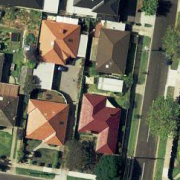The growing cost of Germany's feed-in tariffs
High German retail electricity prices add to the burden of supporting renewable energy and bring closer the end of outright financial support for wind and solar power.
German policymakers are seeking ways to cut household electricity bills and address concern among voters ahead of an election expected in September.
The country has supported renewable energy for more than a decade, to make it cost-competitive with fossil fuels, through a feed-in tariff paid per unit of power under its 2000 Renewable Energy Act (Erneuerbare-Energien-Gesetz, EEG).
Presently falling wholesale power prices have exposed a flaw in the design of the scheme that makes households the main losers.
In the short term, policymakers have various options to cut bills, including: eliminating an electricity tax; cutting value added tax; halting subsidies for new renewable projects; forcing industry to pay a larger share of the levy; or imposing retroactive taxes on existing operators, as Spain, the Czech Republic and Bulgaria have done.
In the medium term, the days are numbered for the feed-in tariff which has done its job in establishing a domestic industry while cutting renewable technology costs, reliance on fossil fuel imports and greenhouse gas emissions.
Any cuts in support should be balanced against cuts in bigger subsidies for fossil fuel and nuclear power.
RETAIL VERSUS WHOLESALE
Renewable technologies have contrasting cost impacts, adding to retail prices through an EEG levy which covers the cost of the feed-in tariff, but cutting wholesale prices because wind and solar have near zero operating costs.
Consumers have not seen the benefit of a lower wholesale power price partly because utilities have not fully passed this on and because electricity generation costs only account for about a fifth of their overall bill.
Most importantly, the EEG levy is calculated based on the gap between the (now falling) wholesale power price and the higher fixed feed-in tariff.
As heavy industry is largely exempt, the burden falls on household bills, which are rising directly because of a lower wholesale electricity price. The EEG levy this year is 5.3 euro cents compared with 3.6 cents per kilowatt hour last year, following year-on-year rises since 2001, data from research at the University of Salzburg in Austria shows below.
The household EEG levy over time (€cents/kWh)

NON-MARKET CHARGES
Residential power prices across the 27 member states of the European Union illustrate the problem.
Average German household prices were the second highest in the European Union behind Denmark as of November 2012, at 0.26 euros per kilowatt hour compared with an unweighted EU average of 0.17 euros, according to Europe's Energy Portal, a private information provider.
The higher price reflected taxes and charges levied on households, which were also second only to Denmark, in absolute and percentage terms, according to Eurostat data.
Charges comprised 45 percent of German household bills, compared with 4.7 percent in bottom-placed Britain, as of the second half of 2011, the latest Eurostat period available.
Break-down of household electricity cost sub-components by EU country

Source: Eurostat
Charges under Germany's renewable energy act aggregated across all electricity consumers leapt in 2011, to 13.5 billion euros from 8.3 billion euros the year before, according to the utility RWE.

Source: RWE
That followed a sharp rise in installed solar power as illustrated in the chart below.

The EEG levy this year will for the first time exceed value-added tax (VAT), as the largest non-market levy on electricity bills.

Source: E-On
Summarising non-market charges as of last April, VAT accounted for 16 percent of retail power prices, followed by the EEG levy (14 percent); an electricity tax (8 percent); a concession fee paid to municipalities (7 percent); and a charge under the combined heat and power act (0.6 percent).
On the bright side, rises in German household power prices are below the EU average, both in percent and absolute terms, Eurostat data show.
ELECTRICITY TAX
One option to ease bills is to cut the electricity tax introduced in April 1999 under an "ecological tax reform", alongside taxes on transport fuels, natural gas and heating fuel.
These were intended to promote energy efficiency and operated in tandem with higher payments into the public pension scheme to remain revenue neutral.
The electricity tax would appear to be a natural candidate for elimination in place of the now much higher EEG levy, given recent rises in electricity bills and the fact the renewable energy levy is itself an environmental measure.
The political hurdles to agree tax cuts in an election year during relative austerity appear too high, however, especially given an opposition majority in the upper house of parliament.
EEG DESIGN
There are limited short-term options for tweaking the EEG levy, which is calculated as the difference between the fixed feed-in tariff paid to operators and a reference wholesale power price, and is distributed between electricity consumers.
The most obvious option is to overturn levy exemptions for industrial consumers, recently extended, and in turn freeze the charge on households.
In contrast to household bills, German industrial power prices are below the EU average, Eurostat data shows.
In the medium term, there are alternatives to the feed-in tariff.
For example, effective support could remain through giving renewables continued priority access to the grid, while desired growth could be maintained by requiring utilities to supply a certain portion of renewable power.
















